#pan-african
Explore tagged Tumblr posts
Text

"We went to school. It was called a school of slavery and a school of segregation. And the lessons were very clear: You hate yourself. You are supposed to hate yourself because you are a, quote, 'minority,' you are different. You are lazy, apathetic, and so forth. And you pass out of this school and pass those lessons to the extent that you believe this, you see."
Everybody pour one out for academic activist and political scientist Charles Vernon Hamilton, who we lost exactly one year ago, today (though as befit his quiet and unassuming nature, we didn't actually learn about his passing until February of this year). Born in 1929 Oklahoma, Hamilton's family later moved to Chicago. Originally inspired to be a journalist, Hamilton instead pivoted to an interest in government and civil service. After a brief period in the military, he graduated from Roosevelt University, and then attained his Master's at the University of Chicago in 1957. A year later he joined the faculty at Tuskegee Institute (now Tuskegee University), but was invited to leave less than two years later for his "incendiary" stance on civil rights (i.e., his association with the nascent SNCC and teaching students how to march, protest, and contact Congress).
Far from being the end, an impressive teaching career followed, taking Hamilton to Rutgers, Lincoln University, and even his own beloved Roosevelt before landing a prestigious appointment to Columbia in 1969 --one of the first Black scholars to chair a department at an Ivy League school. Over the course of this career he cultivated a partnership with Kwame Ture, neé Stokely Carmichael (see Lesson #71 in this series); together they published the controversial Black Power: The Politics of Liberation, which in many ways remains the definitive work on the Black Power movement. In the text, Hamilton coins the phrase 'institutional racism,' concluding that the best method to stand against such baked-in premises lay not in being divided recipients, but united participants. After the book's publication Hamilton continued to work to publicly frame the Black Power movement as a developmental process, not an end in and of itself.
In 1976 Hamilton worked with the Democratic Party as a strategist, suggesting that while it might be acceptable for presidential candidates to sidestep racial politics during a campaign, it was critical that they dealt decisively with issues that affected the black community once they were elected; that no matter how sympathetic a candidate might be to Black causes, that they could do nothing to help if they ultimately alienated their still mostly-conservative electoral base. (Sound familiar?)
Later in 1991 Hamilton published another seminal work, a biography of Adam Clayton Powell, Jr., titled The Political Biography of an American Dilemma. Hamilton retired from the Columbia faculty in 1998 and moved back to Chicago in 2015.
#black lives matter#black history#charles hamilton#institutional racism#black power#pan-african#adam clayton powell#teachtruth#systemic racism#yes its literally critical race theory
3 notes
·
View notes
Text



Lebo Mashile
2 notes
·
View notes
Text
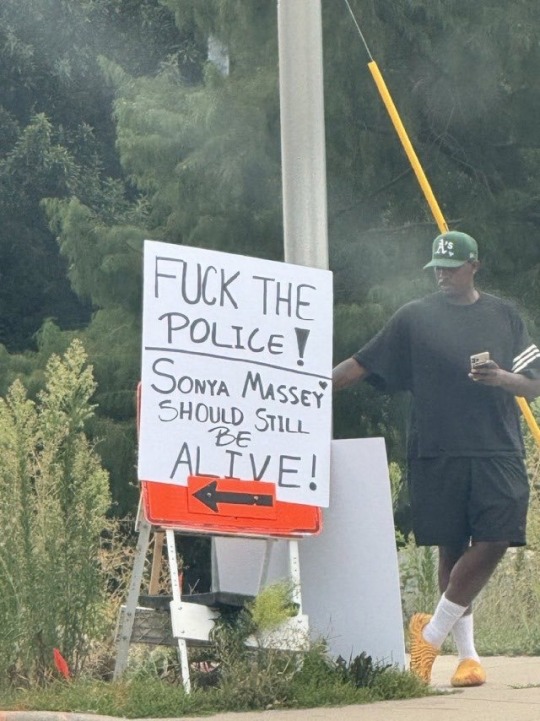
#sonya massey#black lives matter#fuck the police#pan africanism#black moodboard#black tumblr#melanin#black is beautiful#justice for sonya massey#equality#equal rights#white supremism#white privelage#moodboard
2K notes
·
View notes
Text
Pan-Africanism: Uniting The Continent For Progress And Prosperity
In recent years, Pan-Africanism has emerged as a powerful force, shaping the destiny of the African continent and fostering a sense of unity among its diverse nations. This dynamic ideology, rooted in a rich history, seeks to consolidate Africa’s strength and amplify its voice on the global stage. Let’s delve into the fascinating journey of Pan-Africanism, exploring its history, goals,…
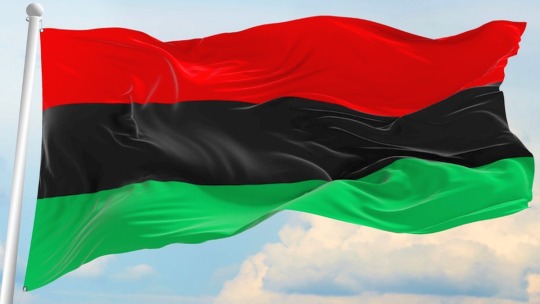
View On WordPress
#AfCFTA#Africa#African Continental Free Trade Area#African Countries#African Sovereignty#African Union#Africans#AU#Colonization#Imperialism#OAU#Organization of African Unity#Pan-African#Pan-Africanism
0 notes
Text

#tyler the creator#earl sweatshirt#blackisbeautiful#blackistheblueprint#blackmusic#blackculture#hip hop culture#hip hop#afrocentrism#rootingforeverybodyblack#belovedcommunity#blackjoy#blackboyjoy#blackjoyisrevolutionary#blackpeople#if you're black you're lucky#blackpeoplemakemesmile#fortheculture#allblackeverything#pan africanism#it's a vibe#blackisavibe#blackpride#blackpower#blacktumblr
1K notes
·
View notes
Text

Tout à Coup Jazz
“Thomas Sankara was a skilled jazz musician, but Compaoré just sang,” says Cisse. “There were more rehearsals than concerts but every performance was magical. When in government, Sankara knew that music was a tool for cultural development, and could effectively be used to promote the revolution”
“He was the special one,” says Pascal Ouédraogo Kayouré, who says he taught Sankara how to play the guitar as a child. “He will always be part of our history. His real passion was music. He was a very disciplined student.” (x)
#thomas sankara#pan africanism#burkina faso#❤️🖤💚#pan african#liberation#lookin fresh asl#betrayal#jazz
286 notes
·
View notes
Text

visual graph of ugly truths
454 notes
·
View notes
Text
#pan africanism#afrikaans#african union#black lives matter#police brutality#black history#africa#niger#black unity#black power#burkina faso#mali
335 notes
·
View notes
Text
Like halfway through "how Europe underdeveloped Africa" cause I decided I'd read/listen to it after I had a strong base on knowledge on African history and just holy fuck is he right about nearly everything so far.
Having learned about how extensive African trade was prior to the 18th century and how heavily most African kingdoms shifted in the 16th it's very clear that what he points out in the way the slave trade and the need to aquire firearms grew the European economies while near completely emptying out African economies and how the hard shift to European import goods after Europe had grow through the use of African slave labor and monopoly of trade routes is still a largely still at play in the era of neocolonialism.
The way that Walter Rodney not just points out that this is true, but the depth to which he covers a variety of African kingdoms, their economies, and cultural practices puts even some college level courses to shame while also showcasing the exact ways in which some of these stronger or more expansive kingdoms like the Ashanti, oyo, borno, Kongo, and Benin kingdoms had explicitly tried everything to get guns through any other trade and how the Ashanti, merina, Ethiopian, Burundi Benin kingdoms sought our education and scholars to begin industrialization and the systematic way in which Europeans and Americans prevented that is just, well it's damming.
It's a continuing reminder how from the first stage of European expansion and control they had precisely zero good intentions for the peoples of Africa. That Europe saw Africa as nothing more than a way to grow itself, it's institutions and improve its economies by depriving Africa of labor, materials and freedom which is true to this day, most starkly in the Congo but true across the whole region.
But while the book shows the crimes of Europeans without sugar coating, it also doesn't glorify the African leaders and more importantly those that became collaborative with European despitism. It also does not abide by the word games the European powers like to play and goes in depth to the way Europeans had no actual interest in ending slavery, and that while invading the various kingdoms and communities to "end slavery" the created some of the most brutal slave conditions on this side of the globe, not just in Leopolds Congo but in French forced labor camps and British controlled regions, with the Portuguese being particularly up front about it.
Truly a shame that like most other black radicals Rodney was murdered so young. The rarity to which black radicals even get to 40 shows how desperately capitalist and white supremist try to prevent even the slightest push back from black voices. It also makes clear how much we all need to know this stuff, from debois's black reconstruction to nkrumah's neoimperialism these books give a great understanding of the past and the precise way in which we arrived to the current situation.
I pray that with the new scramble for Africa that is unfolding in front of our very faces, the genocides in the Congo, and Sudan, and the way in which these interlock with the genocide of Palestinians, that we all take the time to properly read and reflect so that we may properly organize and fight back for a fully free and sovereign Africa and Palestine and a world free from white supremacy.
#black liberation#colonization#politics#indigenous liberation#world of the oppressed#pan african#the colonized#How Europe underdeveloped Africa#walter rodney
669 notes
·
View notes
Text

382 notes
·
View notes
Text

THE PANAFRICANISTS.
186 notes
·
View notes
Text

#black moodboard#black tumblr#moodboard#melanin#black is beautiful#beauty#black cinema#pan africanism#african american#couple goals#relationship goals#marriagegoals#manifesting#true love#soulmates#twinflame#love story
164 notes
·
View notes
Text
instagram
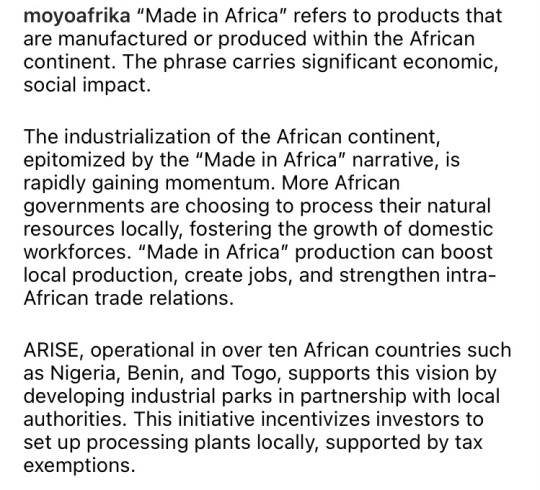
#instagram#instagram post#instagram stuff#social justice#current events#human rights#africa#pan africanism#important#political#political posting#politics#world politics#support local businesses#support black creatives#support black business#travel#support black women#support bipoc#african history#black lives matter#black love#blm#black is beautiful#black is king#african politics#african travel#world travel#travel tips#travel advice
176 notes
·
View notes
Text
Kwanzaa:
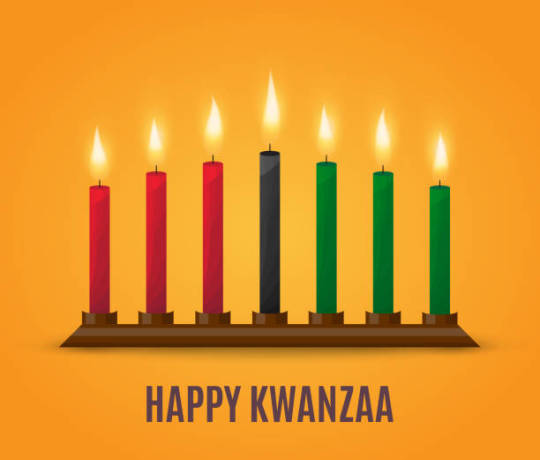
Kwanzaa, an annual holiday celebrated primarily in the United States from December 26 to January 1, emphasizes the importance of pan-African family and social values. It was devised in 1966 by Maulana Karenga, Inspired by Africa’s harvest celebrations, he decided to develop a nonreligious holiday that would stress the importance of family and community while giving African Americans an opportunity to explore their African identities. Kwanzaa arose from the black nationalist movement of the 1960s and was created to help African Americans reconnect with their African cultural and historical heritage. The holiday honors African American people, their struggles in the United States, their heritage, and their culture. Kwanzaa's practices and symbolism are deeply rooted in African traditions and emphasize community, family, and cultural pride. It's a time for reflection, celebration, and the nurturing of cultural identity within the African American community.
Kwanzaa is a blend of various African cultures, reflecting the experience of many African Americans who cannot trace their exact origins; thus, it is not specific to any one African culture or region. The inclusiveness of Kwanzaa allows for a broader celebration of African heritage and identity.
Karenga created Kwanzaa during the aftermath of the Watts riots as a non-Christian, specifically African-American, holiday. His goal was to give black people an alternative to Christmas and an opportunity to celebrate themselves and their history, rather than imitating the practices of the dominant society. The name Kwanzaa derives from the Swahili phrase "matunda ya kwanza," meaning "first fruits," and is based on African harvest festival traditions from various parts of West and Southeast Africa. The holiday was first celebrated in 1966.
Each day of Kwanzaa is dedicated to one of the seven principles (Nguzo Saba), which are central values of African culture that contribute to building and reinforcing community among African Americans. These principles include Umoja (Unity), Kujichagulia (Self-Determination), Ujima (Collective Work and Responsibility), Ujamaa (Cooperative Economics), Nia (Purpose), Kuumba (Creativity), and Imani (Faith). Each family celebrates Kwanzaa in its own way, but Celebrations often include songs, dances, African drums, storytelling, poetry readings, and a large traditional meal. The holiday concludes with a communal feast called Karamu, usually held on the sixth day.
Kwanzaa is more than just a celebration; it's a spiritual journey to heal, explore, and learn from African heritage. The holiday emphasizes the importance of community and the role of children, who are considered seed bearers of cultural values and practices for the next generation. Kwanzaa is not just a holiday; it's a period of introspection and celebration of African-American identity and culture, allowing for a deeper understanding and appreciation of ancestral roots. This celebration is a testament to the resilience and enduring spirit of the African-American community.
"Kwanzaa," Encyclopaedia Britannica, last modified December 23, 2023, https://www.britannica.com/topic/Kwanzaa.
"Kwanzaa - Meaning, Candles & Principles," HISTORY, accessed December 25, 2023, https://www.history.com/topics/holidays/kwanzaa-history.
"Kwanzaa," Wikipedia, last modified December 25, 2023, https://en.wikipedia.org/wiki/Kwanzaa.
"Kwanzaa," National Museum of African American History and Culture, accessed December 25, 2023, https://nmaahc.si.edu/explore/stories/kwanzaa.
"The First Kwanzaa," HISTORY.com, accessed December 25, 2023, https://www.history.com/this-day-in-history/the-first-kwanzaa.
My Daily Kwanzaa, blog, accessed December 25, 2023, https://mydailykwanzaa.wordpress.com.
Maulana Karenga, Kwanzaa: A Celebration of Family, Community and Culture (Los Angeles, CA: University of Sankore Press, 1998), ISBN 0-943412-21-8.
"Kente Cloth," African Journey, Project Exploration, accessed December 25, 2023, https://projectexploration.org.
Expert Village, "Kwanzaa Traditions & Customs: Kwanzaa Symbols," YouTube video, accessed December 25, 2023, [Link to the specific YouTube video]. (Note: The exact URL for the YouTube video is needed for a complete citation).
"Official Kwanzaa Website," accessed December 25, 2023, https://www.officialkwanzaawebsite.org/index.html.
Michelle, Lavanda. "Let's Talk Kwanzaa: Unwrapping the Good Vibes." Lavanda Michelle, December 13, 2023. https://lavandamichelle.com/2023/12/13/lets-talk-kwanzaa-unwrapping-the-good-vibes/.
312 notes
·
View notes
Text

#malcolm x#afro american unity#black empowerment#african unity#african american#pan africanism#black pride#unity#africa strong#respect#civil rights#black history#malcolm x quotes#solidarity#empowerment#black leadership#racial justice#black unity#liberation#diaspora connection
290 notes
·
View notes
Text
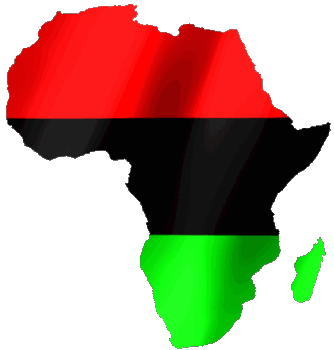
233 notes
·
View notes